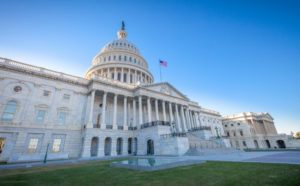
Defense companies’ pause in all political donations by their Political Action Committees (PACs) in the wake of last year's Jan. 6 attack on the U.S. Capitol has not endured. Moreover, according to a new study by Citizens for Ethics and Responsibility in Washington (CREW), the PACs of Boeing [BA], Lockheed Martin [LMT], and Raytheon Technologies [RTX] are among the top 10 PAC givers to those among 147 GOP congressional members--139 representatives and eight senators--who voted not to certify the Electoral…













